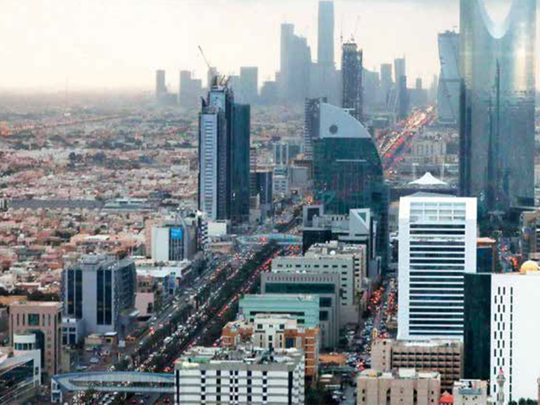
Riyadh: Saudi Arabia’s King Salman Bin Abdul Aziz has issued a royal decree restoring bonuses and allowances for civil servants and military personnel that had been cut under austerity measures last September, in the latest spate of decrees aiming to bolster economic growth and reorganise the government.
“The royal order restores all allowances, financial benefits, and bonuses to civil servants and military staff,” said the decree. King Salman said that the bonuses were restored as revenue increased and the budget deficit declined, according to decrees carried by the official Saudi Press Agency. He replaced the commander of the land forces and ordered the Ministry of Finance to pay a two-month salary bonus to Saudi forces serving on the front lines with Yemen.
Mohammad Al Shaikh, Saudi Minister of State, said the injection of more money was expected to stimulate economic growth.
The broader overhaul to the government comes as Saudi leadership tackles a slowing economy and the war in Yemen, and seeks to reset US ties under President Donald Trump.
In September, Saudi Arabia cut ministers’ salaries by 20 per cent and scaled back financial perks for public sector employees in one of the kingdom’s most drastic measures to save money at a time of low oil prices. The measures were the first pay cuts for government employees, who make up about two-thirds of working Saudis.
The latest decree cancelled those orders, saying they had come as a response to the sharp drop in the price of oil, the main source of state revenues.
Policy review
Oil prices sank to a low of around $28 (Dh102) last January amid a two-year price slump. Since late 2016, however, prices have partially rebounded, with Brent crude now trading around $52 a barrel compared to last year’s average of $45.
Al Shaikh said Deputy Crown Prince Mohammad Bin Salman, who serves as chairman of the Council for Economic and Development affairs, recommended the reinstatement of allowances after an official review and better-than-expected budgetary performance in the first quarter of 2017.
“The government has conducted a review of the measures initiated in the fall in relation to the public-sector employees’ allowances. A number of fiscal adjustment measures were taken over the last two years which led to a strong improvement in the government’s fiscal position,” said Al Shaikh. “As a result, the actual deficit for [the first quarter] of 2017 is about 50 per cent of the projected deficit in the budget due to increases on revenue side and decreases on expense side,” he said.
He joined other key officials in highlighting figures pointing to economic recovery. The central bank governor said the trade deficit was expected to drop in 2017, possibly moving into a surplus, while the deputy economy minister said the kingdom had reduced its deficit in the first quarter of the year by more than half, in part because of prudent management of government spending. “We believe this move will boost positive sentiment as domestic demand recovers on the back of enhanced government employees’ income,” said Al Shaikh.
Consumer spending
The decision could help bolster consumer spending and revive growth. “When the cuts were announced last year, it helped the budget deficit,” said John Sfakianakis, director of economic research at the Gulf Research Centre. “They can let off the pressure on the salaries part now.” If the government continues to monitor its spending, the restoration would not be a step back from diversification, he said. “The impact from the latest decision should be net positive for the economy over time,” Sfakianakis said. “It is a confidence booster for consumption and overall efforts they are trying to achieve.”
It wasn’t immediately clear whether the decision would affect plans to reduce the budget shortfall by 30 per cent to about 200 billion riyals ($53 billion) for the entire year.
Saudi Finance Minister Mohammad Al Jada’an said last week the government was on track to meet its target.
The policies are part of a plan to shore up public finances and reduce the Saudi economy’s reliance on oil – efforts spearheaded by Prince Mohammad Bin Salman.












